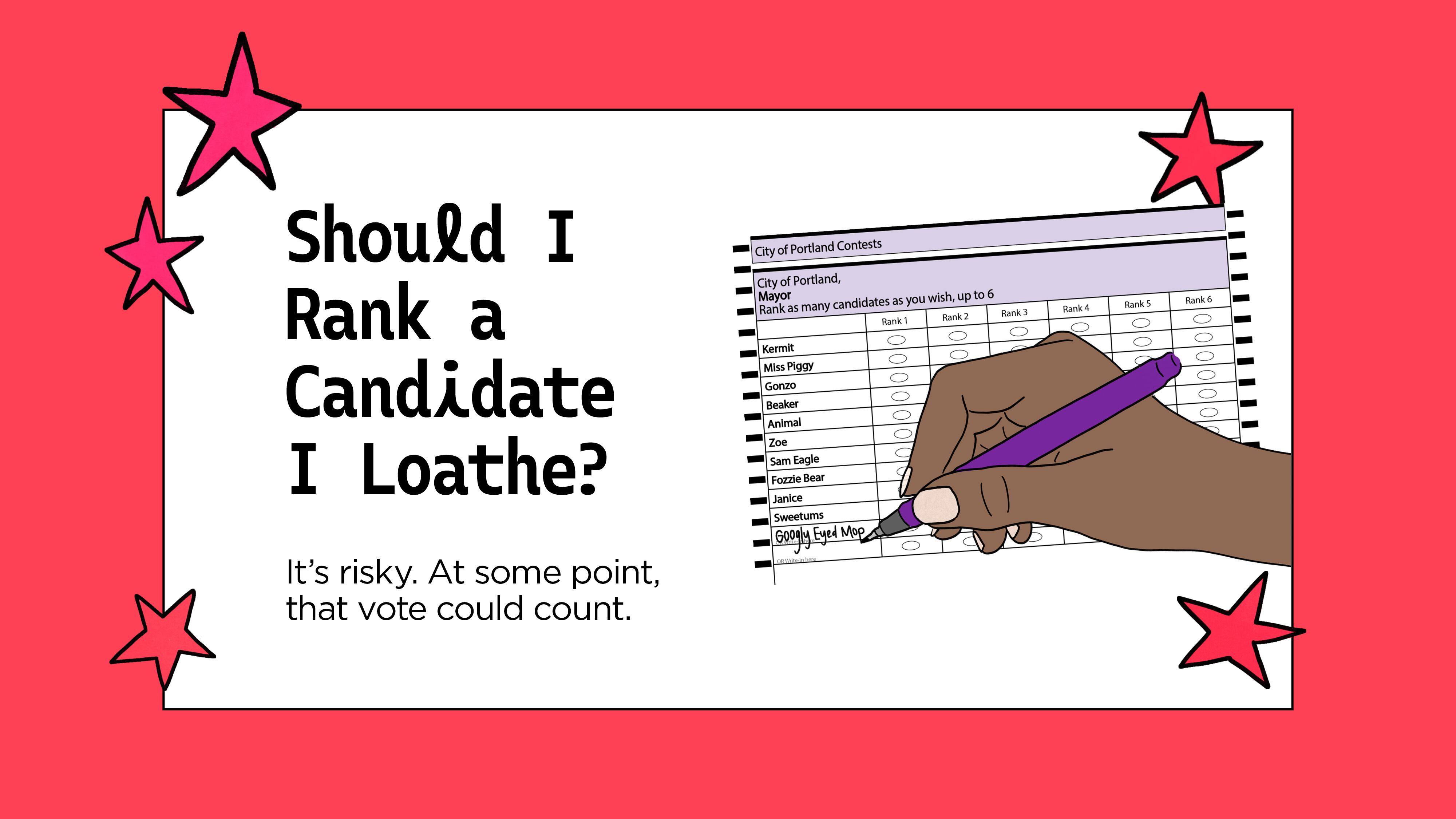Back in the old days (last year), voting called for choosing one candidate in each race. On paper, it was easy, but it often meant making a sacrifice. Say there was a candidate you really liked, but you didn’t think they could win. By voting for them, would you be taking votes away from someone pretty good who could beat someone really bad?
That’s the problem ranked-choice voting seeks to solve! In November’s Portland City Council races, it means picking as many as six candidates instead of just one. It’s more work, but it promises more reward because your vote has a greater chance of mattering.
This week’s question from a WW reader asks about strategy around your pick six. People have lots of theories about how to game the system. Could a group of candidates tell people how to vote to maximize their chances and block rivals? We’ll come to those more involved questions later. For now, let’s keep it (relatively) simple:
Let’s say out of all the candidates, there are fewer than six I can even stomach. If I’d rather be represented by a mop with googly eyes than [Candidate X], am I better off: (1) putting [Candidate X] as my number six; (2) writing in Googly Eyed Mop in the sixth slot; or (3) leaving it blank?
We’re not gonna lie; the reader definitely named Candidate X. (He’s very involved in youth soccer.) But we’re trying to keep this feature above reproach.
And the best strategy for haters is fairly simple. You have the option to rank up to six candidates, but it’s perfectly fine to rank fewer if you only support a couple. In districts with multiple representatives, votes trickle down from top-place finishers to lower ones once the top dogs reach 25% plus 1. Each of our four new districts will have three city councilors, so it’s not winner take all. Big winners, in fact, have to share!
Placing Candidate X at the bottom of your list ensures your vote won’t inadvertently support them unless all other choices are eliminated. But they could be! So it’s best not to support the candidate you loathe at any level.
Writing in Googly Eyed Mop would be amusing, but GEM must be eligible for office. If you leave slots blank after ranking your preferences, it means you choose not to vote for any additional candidates, which is a valid decision if none meets your criteria.
Just as in years past, RCV allows write-ins. But they are only counted if the total number of write-in votes for a candidate reaches the number of votes received by any listed candidate for the same office. If a write-in candidate exceeds the threshold to win, which is 25% plus 1 vote, and is qualified to hold office, they would be elected. Just be sure the mop doesn’t have any skeletons in its closet.
Have questions about your ranked-choice ballot? Send them to ballotbuddy@wweek.com.
 This article is part of Willamette Week’s Ballot Buddy, our special 2024 election coverage. Read more Ballot Buddy here.
This article is part of Willamette Week’s Ballot Buddy, our special 2024 election coverage. Read more Ballot Buddy here.

